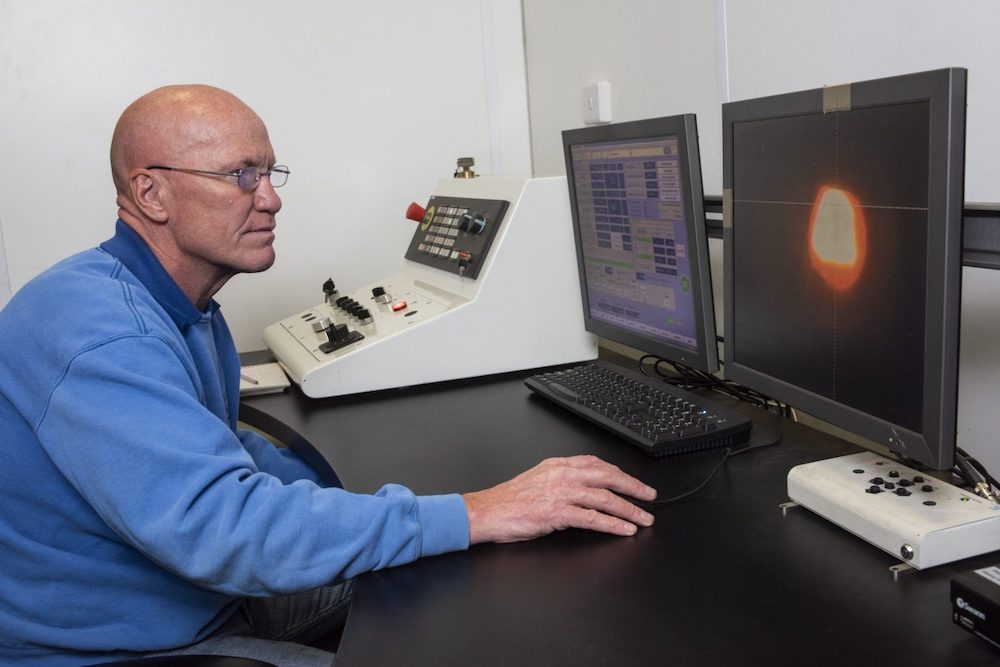
Cambridge, England – 1st January 2018: A new technology could improve the efficiency of large-scale manufacturing projects by enabling firms to perform electron beam welding without a vacuum chamber.
Ebflow, which features a local coarse vacuum that can be transported to and operated on site, has been developed by Cambridge Vacuum Engineering and was launched on 1st January 2018.
The technology is designed to simplify the process of thick section welding in the manufacture of a wide range of large structures including ships, pressure vessels, wind farms and towers, nuclear plants, and many of the structures involved in oil and gas exploration and civil engineering projects.
To date it’s only been possible to perform electron beam welding – a key technology in the fabrication of large, heavy wall structures – at sites equipped with a vacuum chamber large enough to house the structures under manufacture.
But Ebflow’s coarse vacuum can be mounted on tracks and operated locally. The technology can be used in any plant where large components are welded. In tests, Ebflow has been shown to be 20 to 30 times faster than conventional arc welding, offering transformational gains in productivity. At the same time, it uses less power than conventional arc processes, lowering a plant’s carbon footprint.
Among the myriad of other benefits are the ability to perform low-heat input welds that result in reduced distortion – ensuring quality – and the option to perform NDT testing immediately after welding, fast-tracking the manufacturing process and driving down costs.
Speaking ahead of the launch Bob Nicolson, Managing Director at Cambridge Vacuum Engineering, said: “This technology will transform the productivity of fabrication processes throughout the world of heavy engineering. In many cases the speed of welding can be 30 times faster than current methods. The technology has been fully developed and pioneered in Britain and we are now ready to introduce it to the world.”
(ends)
